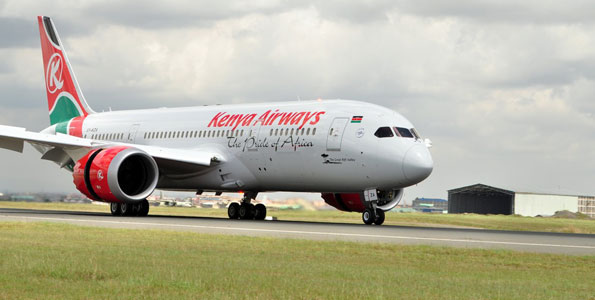The following opinion was first published in the Business Daily.
Kenya Airways (KQ) is truly the Pride of Africa and Africa is its home. It is headquartered in Africa, flies to many African cities, and even non-Kenyans used to be proud of it.
Unfortunately, KQ appears to have adopted a self-defeating pricing strategy that has made the airline one of the most uncompetitive in the African skies.
Mother Teresa taught us that, “Love begins at home, and it is not how much we do… but how much love we put in that action.”
Recently, I have begun wondering how much love of Africa KQ has put into action when it comes to its pricing strategy. Four cases below elaborate how our love affair with the Pride of Africa may falter, and I know I am speaking on behalf of many Africans.
In the past one year, I have attended numerous conferences in African countries. I always request my sponsors to put me on KQ. Their policies, however, require that they use the best pricing possible, and, in virtually all cases, KQ has never fallen within that category.
At one point, I was to attend a conference in Mauritius. My sponsor put me on Emirates, meaning I would I fly to Dubai, then back to Mauritius. The entire journey would take 20 hours of my precious time instead of six.
After a protest, they gave me a second best option: South African Airways to Johannesburg then to Mauritius for a total of eight hours. I opted for this arrangement. KQ was fourth best after Ethiopian Airlines via Addis.
During another trip to Tanzania, I was told the best air ticket deal was Ethiopian Airlines, which would take me through Addis then back over the Kenyan airspace to Tanzania.
In other words, go north in order to go south. The proposed trip would take four hours instead of 56 minutes. I had to top up from my pocket for a direct flight to Dar es Salaam.
I faced a similar challenge while travelling to Abuja, Nigeria. Once more, KQ was nowhere in the top three for best pricing. I used Ethiopian Airlines.
I keep on asking myself: is it that KQ is not aware of its competitors? Is there a deliberate policy to be expensive at home? And if it is, why then is KQ making losses?
As I pondered on KQ’s strategic response to these questions, someone told me that the airline also lags behind in other products like cargo.
Their attempt to ship a three-tonne cargo from Accra to Nairobi via KQ failed because the cost was more expensive than shipping a similar cargo from China, a distance that is almost five times longer.
Another small enterprise wanted to ship horticultural products to Djibouti only to be confronted with a pricing that left them with no income.
Surprisingly, KQ flies to both Accra and Djibouti daily with its belly empty. One would think the airline would leverage on small and medium enterprises (SMEs) to grow its Africa market.
I can only think of two plausible explanations why KQ lacks a strategic response to competitors. The first is that perhaps KQ is still stuck in a monopolistic mentality, while the second is that KQ management is probably preoccupied with operational matters at the expense of strategy.
If this assessment is true, then we have a serious problem, considering the fact that KQ’s core sustained competitive advantage (SCA) lies in its primary market – Africa. It does not have the muscle to fight with the European giants or the emerging Middle Eastern behemoths.
Management scientist, Michael Porter, explained SCA as a firm’s ability to manage the cost drivers as well as differentiation drivers so as to produce a cost advantage or a differentiation advantage.
Other management experts define SCA as the prolonged benefit of implementing some unique value-creating strategy based on unique combination of internal organisational resources and capabilities, value-creating products, technologies, processes and services that cannot be matched by competitors.
Global oil pricing, Ebola and travel advisories placed by some Western nations are just excuses that we must not entertain. If global oil pricing were the culprit, then Ethiopian Airlines would have suffered more considering that it has more networks in West Africa than KQ.
In fact, competition took more customers from KQ’s home turf than the combined number of passengers who would travel from West Africa and the tourists who cancelled their trips to Kenya.
Ultimately, we must look to value-creating products such as SMEs, manage cost drivers and complement that with building a pricing strategy that keeps competitors at bay as a strategy for exploiting Africa’s potential and give SCA to KQ.










